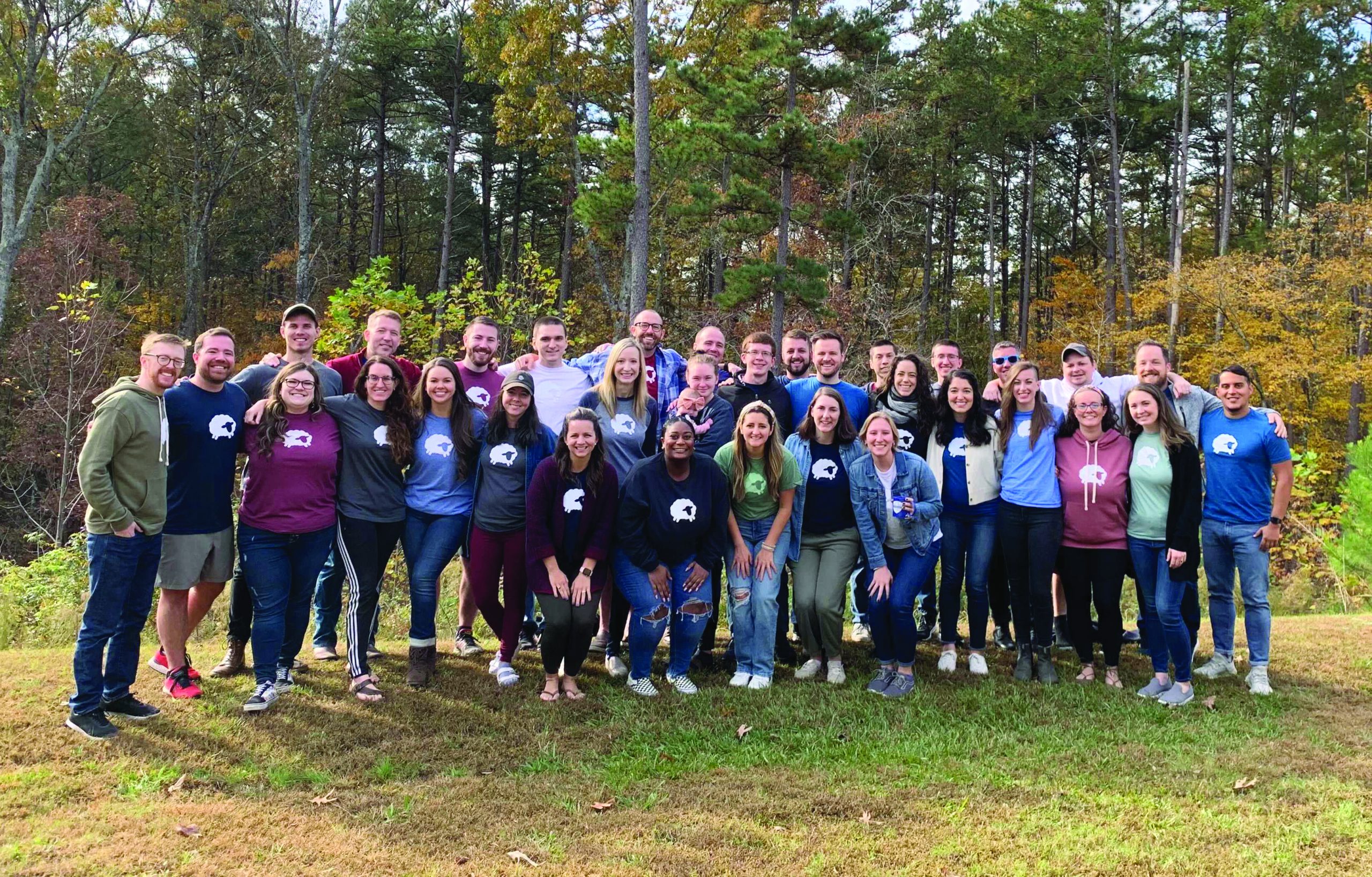Flocknote: A new tool for Catholic communication
BY EMMA JOHANNINGSMEIER
If you are getting regular emails or texts from your pastor or parish, odds are they were sent using software from Flocknote — a Catholic company whose communications tools have been adopted by parishes and dioceses across the country.
The Archdiocese of San Francisco subsidizes Flocknote for all local parishes, and 70 parishes and ministries currently use it.
Since its founding in 2009 by Matthew Warner, Flocknote has been focused on serving the Church and treating its employees well. Last year, inspired by Catholic social teaching, Warner took a new step some might see as daring: he converted his company into a worker-owned business.
 “My hope is that like-minded business owners can work together to bring about a new ‘normal’ way of structuring and running businesses, one that is more consistent with a Christian world-view and that mitigates many of the challenges and downsides of the present-day economy and work environment,” Warner wrote in an email to Catholic San Francisco magazine.
“My hope is that like-minded business owners can work together to bring about a new ‘normal’ way of structuring and running businesses, one that is more consistent with a Christian world-view and that mitigates many of the challenges and downsides of the present-day economy and work environment,” Warner wrote in an email to Catholic San Francisco magazine.
The strain of Catholic thought from which Warner takes inspiration dates back to the 1891 publication of Pope Leo XIII’s encyclical “Rerum Novarum,” generally regarded as the foundational document of modern Catholic social teaching. In addition to affirming the dignity of work and the rights of the worker to humane working conditions, fair wages and labor unions, the encyclical asserted — against the socialists — that private ownership of property is a natural right. “The law…should favor ownership, and its policy should be to induce as many as possible of the people to become owners,” says the encyclical.
In an era of rising inequality and social atomization in the U.S., some believe that Catholic social teaching, with its emphasis on the common good, could point the way toward a more just economic order.
Flocknote founder Warner says by turning Flocknote into a worker-owned business, his communications company is at the forefront.
Warner started Flocknote in 2009 after quitting his engineering job. Warner had gotten deeply involved in his own parish after college, “reading book after book to learn more and discovering many of the endless treasures of the Church,” as he puts it. Meanwhile, watching peers leave the Church made him ponder the causes of the exodus. He came to the conclusion that not only had the Church and families failed to communicate the faith in many cases, but parishes had even more basic communication problems.
“The more and more I got involved, I realized how much we struggled just to communicate much of anything efficiently with most parishioners,” Warner recalled.
He started Flocknote to fill the gap, building software aimed at helping church leaders communicate with their flocks. Today, Warner said, it serves about 9,000 churches across the country, spread across “pretty much every diocese.”
As outside investors have started paying attention to the church software space in recent years, Warner notes, acquisitions have led to increased consolidation of wealth and ownership in the space and widened gaps between employees and owners — a trend he sees as leading in the opposite direction from distributism and Catholic social teaching. Outside investments and acquisitions typically require a fairly quick return on investment, which makes it harder to focus on long-term benefits for employees, customers, and the Church.
“I wanted to build a company willing to work differently, even if it meant growing slower or not making as much money,” Warner wrote. It was his commitment to shaping Flocknote around Catholic social teaching’s “beautiful and inspiring” vision for work that eventually led him to formally transition to worker ownership.
On a basic level, for a company to be worker-owned means that all the workers are also owners in some way — for example, by owning shares in the company. Employee ownership can take different forms, including the classic worker-cooperative form. In the U.S., the most common way to structure a worker-owned business involves something called an Employee Stock Ownership Plan, or ESOP. In this model, employees accumulate company shares over time, often with a retirement plan. The National Center for Employee Ownership estimates there are approximately 6,600 such plans nationwide, covering 14 million workers. Flocknote took the ESOP route.
Although research has shown a relationship between employee ownership and a firm’s performance, it’s too soon to say what the financial impact of worker ownership on Flocknote will be. Still, Warner said he already sees increased engagement among his team members turned co-owners, who are excited about the prospect of benefiting from the “long-term fruits” of the things they’re building.
“I’ve seen how [worker ownership] has already translated to an increased ownership of their day-to-day work responsibilities and strong desire to understand how their work tasks today can add more value into the world for decades to come, and at the same time bolster a secure future and retirement for their families,” Warner wrote. “Perhaps most of all, though, I think the team really values that we are doing things differently as a company, simply because it is a good way to work. And there is no conflict between owners and laborers, because, of course, the laborers are the owners. It promotes a deep team unity since we’re all in this together.” ■

Emma Johanningsmeier is a freelance writer based in the San Francisco Bay Area.

